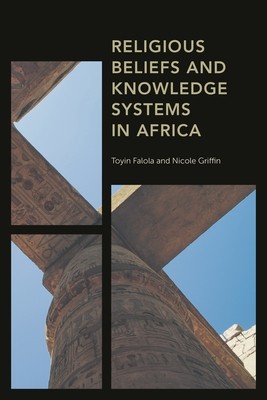
- We will send in 10–14 business days.
- Author: Toyin Falola
- Publisher: Rowman & Littlefield Publishers
- ISBN-10: 1538150263
- ISBN-13: 9781538150269
- Format: 15.2 x 22.9 x 1.9 cm, minkšti viršeliai
- Language: English
- SAVE -10% with code: EXTRA
Reviews
Description
Key to African studies is understanding the knowledge systems of the continent and her diaspora. The representation and understanding of Africa are dependent on the observer's definition of knowledge. Afrocentric knowledge is comprised of a collection of political, religious, and indigenous belief systems. Religious Beliefs and Knowledge Systems in Africa begins with deconstructing the Western philosophy of knowledge before defining and exploring the epistemic disciplines of Africa. It transcends postcolonial critique, through an Afrocentric approach to knowledge divided into three key themes. The first of these is the African worldview, exploring knowledge through eldership, witchcraft, and divination. This is followed up by kingship ideology and epistemologies, exploring discussing how politics, religion, and belief shape African society. Finally, the world religion chapter examines Christianity, Islam, and Pentecostalism in their impact on African ways of knowing. This book calls to action new fields of study in universities, encouraging a greater understanding of African ways of knowing through more nuanced disciplines.
EXTRA 10 % discount with code: EXTRA
The promotion ends in 23d.04:10:14
The discount code is valid when purchasing from 10 €. Discounts do not stack.
- Author: Toyin Falola
- Publisher: Rowman & Littlefield Publishers
- ISBN-10: 1538150263
- ISBN-13: 9781538150269
- Format: 15.2 x 22.9 x 1.9 cm, minkšti viršeliai
- Language: English English
Key to African studies is understanding the knowledge systems of the continent and her diaspora. The representation and understanding of Africa are dependent on the observer's definition of knowledge. Afrocentric knowledge is comprised of a collection of political, religious, and indigenous belief systems. Religious Beliefs and Knowledge Systems in Africa begins with deconstructing the Western philosophy of knowledge before defining and exploring the epistemic disciplines of Africa. It transcends postcolonial critique, through an Afrocentric approach to knowledge divided into three key themes. The first of these is the African worldview, exploring knowledge through eldership, witchcraft, and divination. This is followed up by kingship ideology and epistemologies, exploring discussing how politics, religion, and belief shape African society. Finally, the world religion chapter examines Christianity, Islam, and Pentecostalism in their impact on African ways of knowing. This book calls to action new fields of study in universities, encouraging a greater understanding of African ways of knowing through more nuanced disciplines.


Reviews